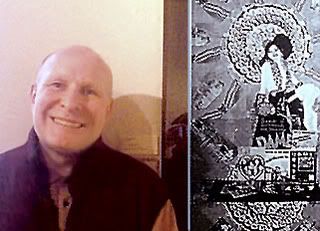
Visit: A Tale of Two Movies
Weather: It's SNOWING! Most of a foot in the mountains and foothills, very little in the south valley.
Wildlife: Spring is the time to make sure the bird feeders are full -- there's very little natural food left over from the winter.
Charity: Child Health Site -- you were a child once
In The Community: The Festival of Cultures at Flathead Valley Community College was a lot of fun, and a bit of work. I'm editing my video of it now.
Media Watch: I was thumbing through Leonard Matlin's 2005 Video Guide -- I'm glad he's recommending "forgotten" movies, and I'm happy about his good attitude toward Mario Bava's work.
This book, and others like it, sure helps us decide if we want to tape or watch something on the satellite.
